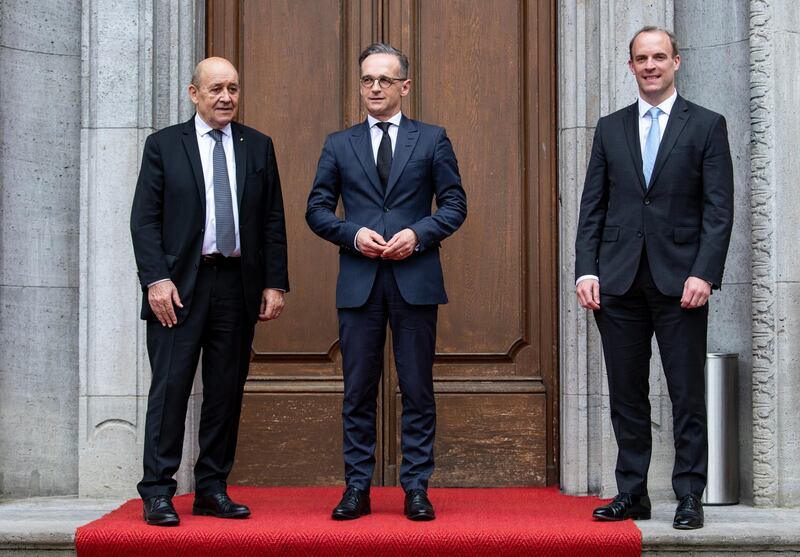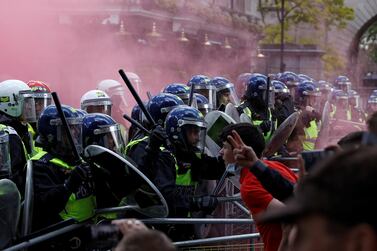Dominic Raab announced the first British international sanctions imposed without reference to the EU in a generation on Monday, proclaiming a new post-Brexit activist foreign policy.
The British foreign secretary said he was determined as a result of his own legal background to ensure the independent sanctions regime of the UK would be robust but also collaborative with other nations. The adoption of a Magnitsky Law, named after the assassinated Russian lawyer Sergei Magnitsky, gave a framework for Britain to be "an even stronger force for good in the world".
Mr Raab highlighted the role of intelligence relationship in sanctions policy, saying that London would work within the five country alliance with New Zealand, Australia, Canada and the USA.
"Targeted sanctions are most effective when they are backed by coordinated, collective, action," he told the House of Commons. "So we will work closely with our Five Eyes partners, in particular the US and Canada, which already have ‘Magnitsky-style’ sanctions legislation, and Australia, which is considering similar legislation."
Leaving the European Union did not mean the end of sanctions cooperation, voluntarily given, with the country's closest neighbours. He met with his so-called "E3" counterparts from Paris and Berlin to discuss coordination recently.
"We also strongly support efforts to bring an EU human rights sanctions regime into effect, and stand ready to coordinate with our European partners on future measures and in fact I discussed it with our E3 partners in Berlin recently," he said.
Today I will introduce a sanctions regime that will target people who have committed the gravest human rights violations. Global Britain will be an even stronger force for good in the world, in the years ahead.
— Dominic Raab (@DominicRaab) July 6, 2020
A total of 49 alleged perpetrators were named in the first tranche of British sanctions on Monday. Emil Dall, senior research fellow at the Royal United Services, said the announcement was a milestone but the policy would be judged over the long term on its consistency.
“Today’s designations are significant in the sense that they represent the first test of the UK’s independent sanctions regime. Whereas previously the UK implemented sanctions negotiated and agreed to by all EU member states, today’s decision to bring sanctions against 47 individuals and 2 entities was made by the UK alone.”
Until the announcement, the UK government had ratified sanctions adopted by the formal process at the UN or by the European Union. The new British list will subject to review every three years but updated when the criteria to target individuals is met.
Mike Pompeo, the US secretary of state, applauded the relaunch of the British sanctions regime. "This sanctions regime marks the beginning of a new era for UK sanctions policy and cooperation between our two democracies. The UK Global Human Rights sanctions regime will give the UK a powerful new economic tool to promote accountability for human rights abuse on a global scale," he said. "The UK’s new powers will complement the efforts of the United States and Canada, further enhancing our ability to act together."







